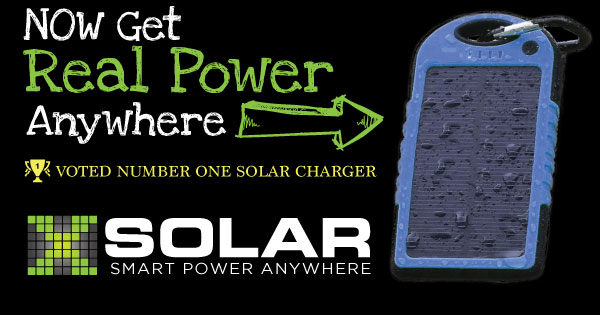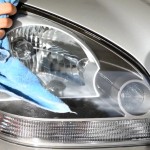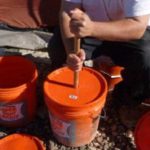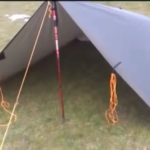Yes, winter is coming. And with winter comes the wind, the snow, the ice and the extreme cold. And, more likely than not, winter will also bring the occasional power outage.
Have you asked yourself what you would do if the power went out for a day or two or for even a week? What would you do? Could you fend for yourself? Could you keep yourself warm in the winter and cool in the summer? What about food? Would your refrigerated and frozen items spoil? And yikes! What would you do about money if credit cards and ATMs no longer worked? Did I mention that in all likelihood you would not have internet access either?
Today I would like to provide 15 tips for getting through short-term power outages. These are the power outages that occur during winter storms or when a vehicle hits a power pole. (Longer term, apocalypse type outages are a subject for another time.) Now if you have a good memory, you will recall we discussed this subject back in July. That was summer. And now, with the cold months ahead of us, it would not hurt to have a refresher course.
We count on electricity for heat, food, medical, communication and financial needs. Our appliances and work-saving devices rely upon a source of electricity for operation and even many gas powered appliances such as furnaces and hot water heaters need electricity to run. The worst thing about it is that when the power goes out, it is likely to be the result of some other emergency such as a hurricane, tornado, or winter storm. This means that the folks that are supposed to fix the problem may be spread wide and spread thin and it may be days before the lights are back on.
A power outage is not something that just might happen. I can pretty much guarantee that it will happen. The more you can do to prepare, the greater the likelihood that you will be comfortable and that will only suffer an inconvenience when the lights go out.
Shall we start?
1. Have flashlights ready in multiple, easily accessible locations around your home. Be sure to also have plenty of fresh, spare batteries. You need one really great flashlight but it is also nice to have a bunch of small, handheld LED handheld flashlights.
2. Have emergency candles plus matches available as well a candle lantern
, oil lamp, or propane lantern. Be sure to include some longer, fireplace type matches or a butane wand for lighting fires in your fireplace or outdoors in a fire pit,
3. Have either a battery-operated radio, solar radio or hand crank radio so that you can stay in touch with the world. Make sure your radio is in working condition by testing it at least once a year.
4. Learn how to cook over an open fire, using charcoal or wood or even biomass.
5 Make sure you have a manual can opener for opening cans of food. If you are a coffee drinker, also have a French press available as well as pre-ground coffee,
6. Fill the empty space in your freezer with containers of water. Frozen water will displace air and keep food cold longer if the power goes out. Remember to leave space in containers for ice to expand. Empty milk cartons can be repurposed in this manner.
7. If you use a landline, have at least one phone with a handset cord in your home. Many cordless phones will not work in a power outage. Cell phone users should keep their cell phones charged and at the very least, pick up a cell phone car charger
so you can charge the cell in your car if it runs down.
8. If you have an automatic garage door opener, learn how to use the manual release to open your garage door manually. Keep the instructions handy – perhaps taped to the inside of a closet door – so you don’t have to search for them when the time comes.
9. Keep your automobile’s fuel tank at least half full. Many gas stations will not be in operation during a power outage. And please – fill up your tank if a major storm is predicted.
10. Once the power goes out, unplug sensitive electrical equipment such as computers, printers, televisions, and audio equipment. When the power comes back on, there may be power spikes that can damage delicate electronics. I know, it has happened to me. Keeping these items plugged in to surge protector helps but it is still best to unplug these items from the wall completely.
11. Do not open refrigerators or freezers any more than necessary. An unopened refrigerator will keep food cold for approximately 4 hours, an unopened freezer will keep food frozen for approximately 24 hours and even longer if it is located in a cold garage. You will need to throw away any food items that become warmer than 41 degrees. No testing, no tasting. To the garbage it goes. Sorry, that is just the way it is.
12. Keep a supply of books, board games, playing cards and other items available to keep you entertained and amused during a power outage. A bit of chocolate and a bottle or two of wine or whiskey would also help in the amusement area.
13. Be wary of the possibility of carbon monoxide poisoning, which is caused from exposure to odorless fumes created by charcoal grills, camping stoves or generators that are operated inside a home or garage. Never, ever burn charcoal or use gasoline or propane-powered equipment inside your home. Don’t even do it in your garage or on your porch. Use such equipment only when you’re completely outdoors.
14. Notify your power company in advance if you use special healthcare equipment like oxygen generators or dialysis equipment that require power. Most power companies have the ability to note this in their records and will prioritize the response to your home.
15. If your budget allows, acquire a portable generator. Learn to safely use your generator and test it monthly. And don’t forget to store enough fuel to run the generator for up to a week. Remember, your portable generator does not have to run full time. Your refrigerator will be just fine without power over night when it is not being opened and closed repeatedly.
A word about generators: Using a properly connected whole house generator of adequate size during a power outage will reduce or almost eliminate the impact a power outage has on your life. Before you buy such a generator, talk to an electrician about the size and type you need as well as the installation costs.
Think about what you want your generator to run. For the basics, a generator can be used to keep food cool, provide lights and electricity for stovetops, computers, telephones and television, and to power furnace blowers and pumps. Less important is power for washing machines, dishwashers and ovens.
The best way to use a generator is to connect it to your home using a transfer switch installed by a licensed electrician. This will keep the power from overloading the wiring in your home. It will also keep the power from your generator from traveling back into the power lines, which could seriously injure or kill people working on power lines. Alternately, you can connect equipment directly to the outlets on the generator. If that is your method of choice, be sure that any extension cords are of the proper length and gauge to handle the power requirements of the connected equipment.
Just remember, Mark Twain said “Climate is what we expect; weather is what we get.” A power outage is inevitable. There is really no excuse not be prepared.
















